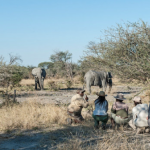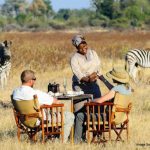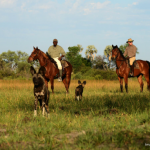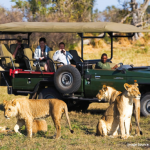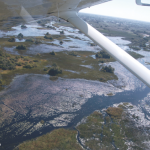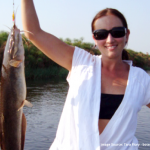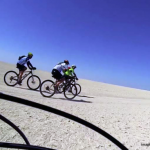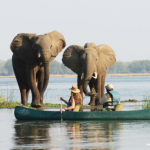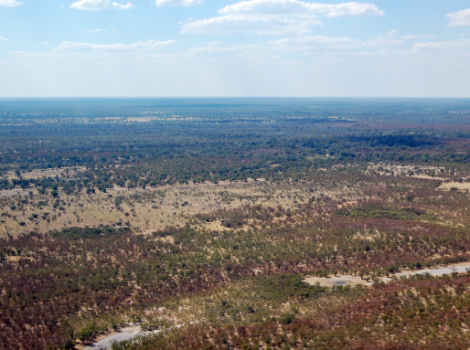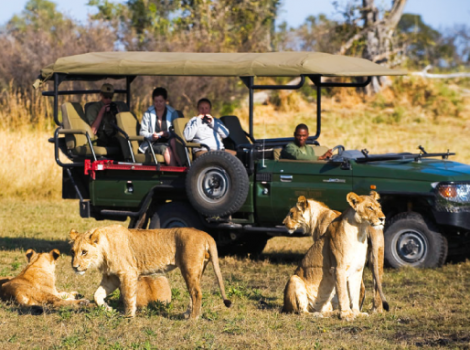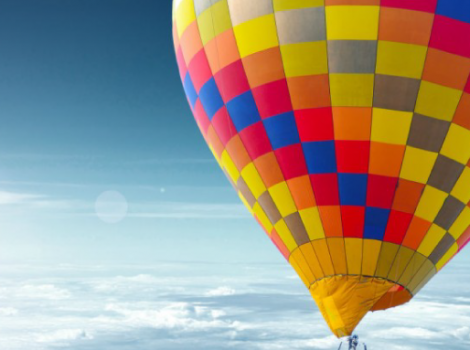Botswana hasn’t always been the first option for safari holidays. Beyond Africa, safari enthusiasts have often considered Kenya or South Africa before ever thinking of Botswana. However, all that is changing as Botswana continues to become more and more visible through the power of modern technology, among others.
This week we bring you 8 safari options you may want to explore in Botswana. The kind of safari you choose will, of course, hinge largely on how deep in to your pocket you are able to dip your hand, the amount of time you have, the type of excursions that tickle your fancy as well as the time of year you wish to visit. Whatever you decide, there’s a wide range of options for all budgets and tastes.
1. Fishing safaris
The Okavango Panhandle offers excellent fishing including tiger fishing. Specialist fishing operators can put together a variety of excursions in a number of different areas along the Delta’s waterways and lagoons. Accommodation comes in the form of tents, a selection of fixed lodges along the Panhandle on the western side of the Delta. Fishing safaris can also be organised on the Chobe River and the Limpopo River.
2. Fly-in safaris
Visitors are flown in in small, lightweight aircraft if visiting remote safari camps and lodges that aren’t easily accessible by road. Vistors often fly in from Maun, dubbed the ‘gateway to the Okavango Delta’. The journey into the camps usually lasts no more than an hour but is a fantastic introduction of what’s to come as the aerial views offer a stunningly unique perspective as your pilot swoops down over the lagoons and channels for a close-up view of the wildlife. Most safari camps in the Delta have their own private landing strips and fully catered accommodation is usually in chalets, elevated luxury tents (small comfort for those petrified of creepy crawlies!). The delicious, made-from-scratch food served and the world-class service delivery are always some of the highlights!
3. Mokoro or canoe safari
Dugout canoes, or mokoros as they are locally referred to are arguably the best way of experiencing the Okavango Delta. They do take some getting used to, as visitors may be wary of ending up in the water if the mokoro capsized. However, they are deceptively stable, highly enjoyable and very relaxing. The mokoro excursion can last anything from a couple of hours to a few days. All the supplies required are brought on the mokoro and if the excursion is days long, you’ll be camping on the small islands dotted along the way. The poler, who also serves as your guide, expertly navigates his ways along the seemingly endless but breathtakingly beautiful waterways. Stops are usually made along the way to allow you to stretch your legs and take in and savour the stunning views. Some of the water camps also offer motorised boat rides.
4. Mountain biking
This excursion is fast catching on and has never been more popular! It is best suited to the Northern Tuli Game Reserve and Tuli area, where the terrain is ideal for this activity. Visitors are able to kill many birds with one stone, enjoying the physical aspect of the excursion against the background of gorgeous scenery that includes the possibility of spotting the amazing wildlife. While it’s easy to overlook the Tuli area in favour of the Okavango Delta and the Chobe, the area has beauty all its own that cannot ever be denied.
5. Mobile safaris
For those who enjoy mobile safaris, there’s no end of operators based in Maun and Kasane to help you tailor make your ultimate mobile safari experience. Many of the operators are citizen owned and cater to various budgets, with offers ranging from high end, fully serviced trips right down to budget options that cater to those who prefer to ‘rough it’. As the name suggests, this offer allows you to ‘take the camp with you’. You’ll be stopping at various points, constructing a camp from scratch and dismantling it before moving onto your next spot. This type of safari allows you to experience different terrain and see various animals. You’re always accompanied by professional, experienced guides who tend to use Botswana’s Hotel and Tourism Authority of Botswana – HATAB approved campsites, which are set away from the busier government campsites.
6. Walking safaris
Travellers keen on a more active bush experience can opt for a walking safari offered by many camps/lodges. Again, these are led by professional guides who are experts at animal tracking and will along the way point out the various fauna and flora that you’ll find fascinating. Walking safaris are an intense, up close and personal experience. While every precaution is taken to ensure tourists are safe at all times, it should be noted that there’s a certain element of the unknown as wild animals roam the areas through which the tourists will pass. There’s an indescribable feeling of freedom and excitement that comes with quad biking through the interminable Makgadikgadi Saltpans. Operators ensure that only a few trails are used to safeguard the fragile wilderness.
7. Self-drive safaris
Those who like to live life on the edge may prefer to go it alone through the self-drive safari. 4×4 vehicles are required for this excursion and should you need to hire one; there are many car hires in Maun, Kasane and Gaborone including Hertz and Avis. There’s also the option of hiring a seasoned guide. While the self-drive safari option offers freedom and flexibility, it also calls for self-sufficiency, careful planning and preparation including stopping off to replenish food and refuel at various points of your journey. It also means you have to familiarise yourself with the dos and don’ts of camping in the wild and how to cope with the often rough and sometimes gruelling driving conditions in the reserves, especially following heavy rains. It is advisable to travel in at least 2 vehicles. If planning to use the government campsites, it’s imperative to book ahead through the Department of Wildlife and National Parks.
8. Horseback safaris
Yet another exciting way of exploring the Botswana wilderness, the good thing about horses is that they are able to navigate their way through various types of terrain with great ease. This also means you’re able to view the wildlife up close and personal, if you can brave it! Proficiency in riding is a must, as you’ll need to be able to keep up with the rest of the group. Trips are usually arranged for small groups, camping at various points along the trip.
Elephant back safaris banned in 2016
You used to be able to do elephant rides at Abu Camp, but Botswana banned the excursion 2 years ago, much to my delight! Abu Camp, the only facility which offered elephant back rides in the country, was ordered to terminate its elephant back safari excursions. The move was reportedly linked to a government policy in accordance with the Minister of Environment TK Khama, to improve the welfare of elephants in captivity.
Credit to Abu Camp, it declared in a press release at the time,
“Following an extensive review of its program and in compliance with recent government directives… as of 31 December 2016, Abu Camp will no longer allow guests to ride elephants.”
Reference: botswanatourism.co.bw, natureworldnews.com

